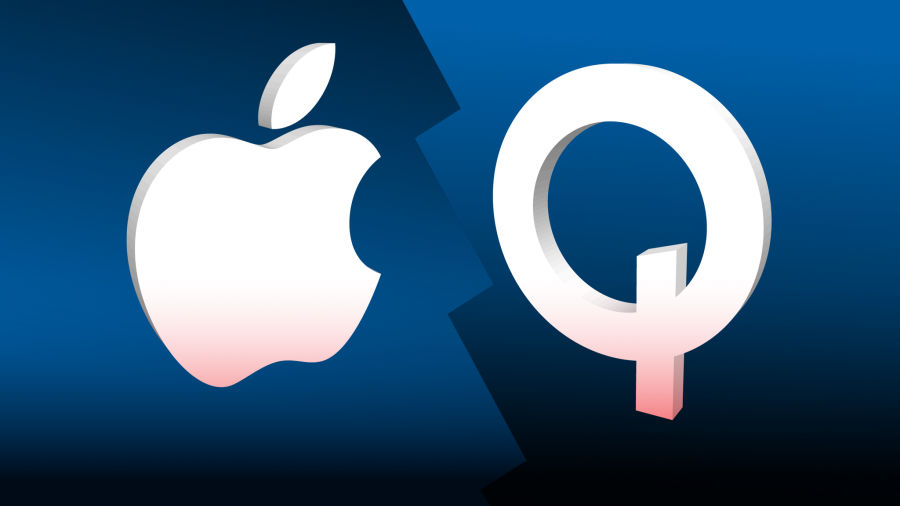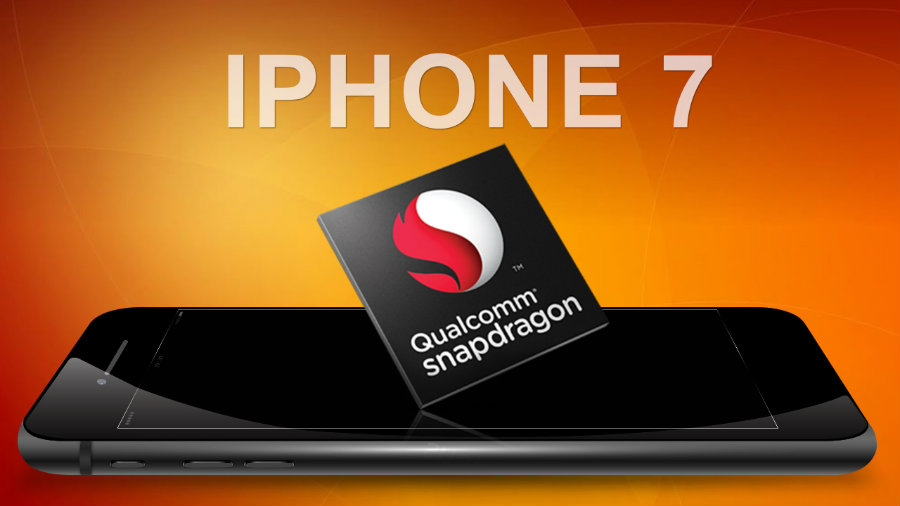Chipmaker Qualcomm is suing Apple for patent infringement, the latest development in an escalating legal battle over whether Apple should pay for Qualcomm technology used in iPhones.
Qualcomm alleges that Apple infringes six patents covering several aspects of mobile phone technology.

The chipmaker company is also requesting the U.S. International Trade Commission in Washington to prohibit versions of the iPhone that aren’t built with its chips from entering the United States and to bar sales of those products already in the country. Qualcomm said they would file the complaint with the U.S. International Trade Commission on Friday.
Qualcomm filed suit against Apple and plans to file complaint with U.S Trade Commission
Qualcomm’s new legal strategy could both increase pressure on Apple to pay patent fees and demonstrate that Qualcomm still manufactures cutting-edge technology rather than exploiting old inventions, as Apple has said.
“They’re taking advantage of these new technologies and they’re not paying for them,” said Qualcomm’s general counsel Don Rosenberg, according to Bloomberg Technology. “We are current, we are new and we will continue to enhance the value of the experience.”
An Apple spokesman said the Cupertino, California-based company has always been willing to pay a fair rate for standard technology from Qualcomm used in its products and attempted to negotiate with the San Diego chipmaker for fair licensing terms for years without success.
Back in May, Chief Executive Officer Tim Cook told investors and analysts that he doesn’t believe that a court would rule to enjoin the iPhone in the absence of an offer of fair terms from Qualcomm.

Qualcomm is also facing regulatory scrutiny for its licensing practices
The broader legal dispute revolves around patents that allow Qualcomm to earn a cut of the sale of every modern smartphone, even if the device doesn’t have one of their chips. Apple claims that the system is unfair and that Qualcomm has used licensing leverage to boost its semiconductor unit illegally.
“It doesn’t bode well for a quick and easy agreement,” said Will Stofega, an analyst at IDC Corp, according to Bloomberg Technology. “The bottom line is Apple wants a lower price and Qualcomm says no. This is a really big issue and they’re prepared to fight.”
Apple’s disregard for the chipmaker’s most profitable business caused the company to intensify the fight against the iPhone maker to improve its negotiation position. What’s more, Qualcomm is currently facing regulatory scrutiny around the world for its business practices, something the company says Apple has lobbied for by lying to government officials.
Complaints against the chipmaker usually focus on its licensing practices for a category of patents that are acknowledged to be essential to cellular communications. Standards organizations require that holders of these patents offer licenses for them widely. However, Qualcomm’s critics argue that the chipmaker evades its obligation by refusing to license those patents to rival chipmakers.
Trade Commission could ban Apple from importing iPhones with Qualcomm’s chips
Qualcomm’s modem chips are used in some versions of Apple’s iPhone. Other versions use chips made by Inter Corp. The chipmaker won’t seek to exclude those smartphones that carry its own modems.
The patent infringement complaint was recently filed in a federal court in San Diego, where Apple had already filed its antitrust suit and where Qualcomm sued some manufacturers who refused to pay royalties for its patents on Apple’s order. The new lawsuit is likely to be put on hold pending the result of the trade complaint.
The trade commission in Washington, a legal entity that has the power to block or allow the import of goods and products into the U.S., is known to handle its cases quickly, compared to cases that are resolved in district courts. Cases dealt with by the trade commission are completed in 15 to 18 months, while district courts can take years to issue a ruling.
The trade commission, however, does not have the authority to order Apple to pay royalties as a district court can, but it does have the power to order that iPhones be stopped at the border upon entering the country and force Apple to stop selling already imported products.
Qualcomm noted that one reason why it’s seeking to block only products that don’t include its chips is that the trade commission is mandated to protect the general public interest and to block all iPhone and iPad imports would affect Apple, Intel and other telecom carriers and retailers that distribute and sell the iPhone.
The technology included in the six patents in the new complaint is not related to any industry standard, which means there’s no limit on how much Qualcomm could ask in royalties and no legal argument over whether the rates it demands are reasonable or not. Qualcomm noted that some of its patented inventions help smartphones efficiently transmit data –like video files- over cellular networks without killing the battery.
Rosenberg compared Qualcomm’s lawsuit against Apple to Apple’s fight against Samsung.
“They believe they have the right to get paid when someone takes their technology and uses it,” said Rosenberg. “And so do we.”
Source: Bloomberg Technology
